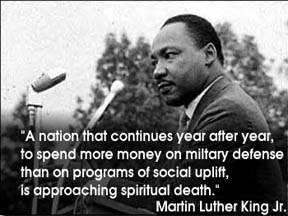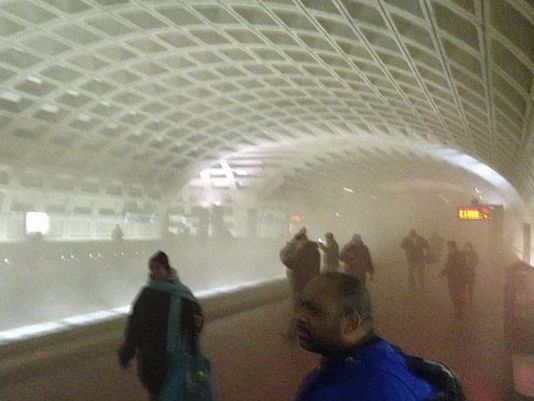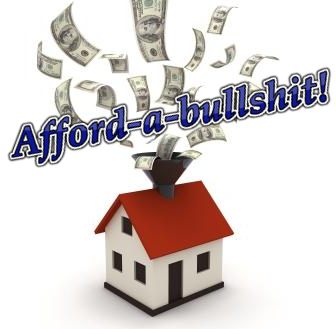DC for Reasonable Development FALL UPdate:
Calendar, Articles & Racism in the District
DC for Reasonable Development connects points of information for your mental digest to inspire action in you and your neighbors living and working in the District.
Our updates are seasonal, but our site is full of current resources and information to assist in your desire to not be displaced, ignored, or adversely affected by the influx of developer-corporate capital flowing into the City and drastically changing our collective futures.
The racism we see at the ground-level and on the street is also perpetrated at the highest government levels as well.
Disparate treatment by the cops is mimicked by City zoning officials and the result is the same, racism.
This has got to stop. Learn more. Then Act!
Update Topics (with links to data)
Racism in DC (On the streets and in the halls of planning and zoning) http://www.dc4reason.org/updates/215#racism
Affordable Housing (More Housing Needed, Congress Heights, Downtown Exempt from Affordability) http://www.dc4reason.org/updates/215#housing
Food Security (Local DC farm festiva; Anti-Monsanto) http://www.dc4reason.org/updates/215#food
Municipal Energy Update: Exelon supported by Mayor, Opposed by the People (Keep the pressure on) http://www.dc4reason.org/updates/215#energy
MLK Library Renovation Update (See the plans, meet DCPL’s Director) http://www.dc4reason.org/updates/215#libraries
Transportation Metro (Bigger DC — Bigger Metro Collapse) http://www.dc4reason.org/updates/215#metro
Social Justice Activities (Save McMillan; Public Banking; Dia De Los Muertos) http://www.dc4reason.org/updates/215#social_justice
—————————————————————————–
RACISM IN DC
On the Street and in DC’s halls of planning
—————————————————————————–
This past week we have seen our young black friend Jason get brutalized by cops who responded to a call from a person who “felt uncomfortable” that him and his friends were getting money from the bank >> http://wjla.com/news/local/lawyer-for-udc-student-handcuffed-on-video-looking-into-civil-rights-violations
Then we found out that business leaders are working with the Metropolitan Police Dept. and other officials to implement an online app used to largely profile black people in and around Georgetown >> http://www.cbsnews.com/news/mobile-app-groupme-used-to-counter-shoplifting-in-georgetown-accused-of-racial-profiling/
The on the ground profiling and racism follows a pattern with District officials in DC’s planning departments too.
As it regards the controversial Zoning Regulations Rewrite, several residents, including ANC’s have complained that residents in Georgetown were offered special treatment in working alongside the Office of Planning to customize zoning regulations to protect their community >> http://www.dc4reason.org/zrr/anc/pr/
But, when ANC’s in Ward 5, 7, and 8 asked for similar direct assistance as offered to Georgetown, the Office of Planning told them to wait until the ZRR had passed, effectively nullifying any chance at customizing and protecting their ANC districts from the ZRR. http://www.twilightzoning.org/wrong
Racism in DC is present from the profiling on the ground by cops and business leaders all the way up to the DC’s planning and zoning officials. And, the mounting demands for justice is real.
#BlackLivesMatterDMV will be hosting a march against racism and police abuse on October 20, 2015, 7:30pm, be there. FMI >> https://www.facebook.com/events/185243745143911/
top
—————————————————————————–
ARTICLES & EVENTS
Housing, Food, Energy, Libraries,
Transportation & Social Justice
—————————————————————————–
Housing (Articles & Events)
Even when the DC Government intervenes to help, they pour on the hurt.
In the case of a dilapidated apartment building, DC’s Department of Consumer and Regulatory Affairs (DCRA) helps people move out of an unsafe situation, but then won’t provide any real temporary living options for those DC residents being moved >> http://wjla.com/news/local/evicted-from-unsafe-building-dc-residents-struggle-to-find-affordable-housing
In Ward 8, the Congress Heights Metro properties face development, but at what costs and who benefits >> http://tinyurl.com/wapo-oct-14-2015-CH
And, in downtown, where housing affordability is at an all-time low, some of the last affordable units at Museum Square are threatened to be displaced as part of a national trend of hatred of the poor and working families >> http://www.afro.com/voucher-expirations-create-housing-insecurity-in-d-c-across-nation/
To stand up for affordable housing in the District, there are several events to mark your calendar by:
* Empower DC — affordable housing advocates — Annual Meeting, This Saturday, October 17, 11AM to 2PM, Union Temple Baptist Church, 1225 W Street, SE. http://tinyurl.com/empower-dc-annual-mtg-2015
* The DC Department of Housing and Community Development (DHCD) is to host two public input events and release an online survey for residents to express affordable housing and community development needs in DC. First one to be held, Wednesday, October 28, 2015 at 6:30 p.m. at the Watha T. Daniel/Shaw Library, 1630 7th Street, NW in the large meeting room, FMI >> http://dhcd.dc.gov/service/dc-draft-fy-2016-2020-consolidated-plan
* The Campaign for Inclusionary Zoning invites the public to learn how we can help make Inclusionary Zoning better serve the people it was intended to help. Be at the meeting to discuss, Thursday, October 22, 2015, 9:30–11:30am at DC Fiscal Policy Institute (DCFPI), 820 First St NE #510, Washington, DC 20002. There are specific ways to make IZ work >> http://www.dc4reason.org/updates/179
top
Food Security Events
Here in the District, while baseball and basketball stadiums steal the show, and steal our city monies, many DC youth still go to bed hungry on any given night.
There are two events coming up to work on Food justice issues this weekend:
* Local District farmers proving lots of healthy food can be produced relatively inexpensively within the District. The Three Part Harmony Farm team invite you to their Fall Farm Festival, 10AM to 4PM at 3104 4th St NE, Washington, DC 20017 (close to the Brookland Metro Stop on the Red Line), FMI >> https://www.facebook.com/events/1471814903124592/
* Join the Food Justice Coalition as we go to Washington, DC to fight the DARK Act! Friday will be a day of Senate lobbying followed by a March around DC and Saturday will be the Food Justice Rally at the West Lawn of the U.S. Capitol with speakers beginning at noon. FMI >> https://www.facebook.com/events/582976311808973/
top
Energy Access & Justice
It would appear the Mayor and other officials, including DC’s first-elected Attorney General, Karl Racine, as well as many business and social leaders are trying to work around the decision by DC’s Public Service Commission to oppose the Exelon-Pepco Merger >> http://dcist.com/2015/10/heres_what_people_are_saying_about.php
It is clear that Exelon is looking to leverage DC’s Pepco assets and financials, those of OUR energy provider, to balance THEIR failing nationwide nuclear-based energy gamble.
If you oppose this bad deal, DC SUN is asking you write a letter to City officials asap >> http://www.powerdc.org/take-action.html
top
DC’s Libraries
DC’s central public library, our King Memorial Library is being renovated >> http://dclibrary.org/MLKfuture
Join the MLK Library Friends and come hear about the plans for the future of MLK Library, provide your feedback, and engage with the Director of the Library, Rich Reyes-Gavilan. This coming Tuesday, October 20, 2015, starting at 6:30pm at the MLK Library, 901 G Street, NW. FMI >> http://www.mlklibraryfriends.org/
top
Metro Transportation
As the DC Zoning Regulations Rewrite (ZRR) looks to triple the area of “Downtown DC,” the transportation capacities of Downtown have not been evaluated by City planners >> http://dczoning.blogspot.com/2014/03/downtown-thats-where-action-is.html
In fact, while DC’s Office of Planning and Zoning officials want to go big with DC, including a bigger downtown, with bigger crowds, bigger offices, bigger cafés, bigger toilets, and bigger transportation demand — simultaneously Metro is struggling to keep up with current levels of action, threatening increased fares and service cuts Downtown and around the City.
See these articles:
It seems the City planners want to ignore Metro’s woes in their attempt to appease the corporate developers who want to squeeze as much profit from every corner of DC, without having to look under the rug, or in this case the street to determine if DC’s ageing infrastructure and transportation modalities can keep up with their incessant greed.
And, then there’s this, “Study Says DC Most At Risk of Water Shortage” >> http://washington.cbslocal.com/2013/05/15/study-says-dcs-water-is-at-risk-of-drying-up/
top
Social Justice Activities
Rounding out this Fall update are a slew of upcoming events to make sure you are a part of:
* SAVE MCMILLAN PARK — Pack the hearing room on October 26, 2015 if you oppose the privatization and demolition of one of DC’s first integrated-spaces and 25 acres of historic public land. FMI >> http://dccouncil.us/events/committee-of-the-whole-public-hearing
* PUBLIC BANKING — If you like the idea of the people of the District controlling their future through direct fiscal responsibility and democratic decision-making, then be at the Goethe Institute next Wednesday night >> https://www.facebook.com/events/836405599811113/
* OCT 30 — Quetzal: Día de los Muertos Concert (free!) >> https://www.facebook.com/events/695075803970014/
top
—————————————————————————–
OTHER ARTICLES OF IMPORT
—————————————————————————–
* District officials violating law on language access, lawsuit says –– https://www.washingtonpost.com/local/dc-politics/district-officials-violating-law-on-language-access-lawsuit-says/2015/10/06/9e5c578e-6c3f-11e5-aa5b-f78a98956699_story.html
* Never mind the hipsters. It’s the property developers who are ruining our cities — http://www.theguardian.com/commentisfree/2015/sep/28/hipsters-property-developers-gentrification-cereal-killer-cafe
* 6 imaginative new ways America has found to punish its poor — http://www.salon.com/2015/08/18/6_inventive_new_strategies_republicans_have_developed_to_punish_the_poor_partner/?utm_source=facebook&utm_medium=socialflow
* POLL: What Should the RFK Stadium Campus Have in the Future? — https://www.hillnow.com/2015/09/29/poll-what-should-the-rfk-stadium-campus-have-in-the-future/
* Taxes Will Fund 90 Percent of Wizards Practice Site — http://www.washingtoncitypaper.com/blogs/looselips/2015/09/15/taxes-will-fund-90-percent-of-wizards-practice-site/
* The Continuing Legacy of Theresa Howe Jones — http://husln4.com/2014/11/26/the-legacy-of-theresa-howe-jones/
* California citrus farmers pull up trees, dig reservoirs to survive drought — http://news.yahoo.com/california-citrus-farmers-pull-trees-dig-reservoirs-survive-130944199.html






